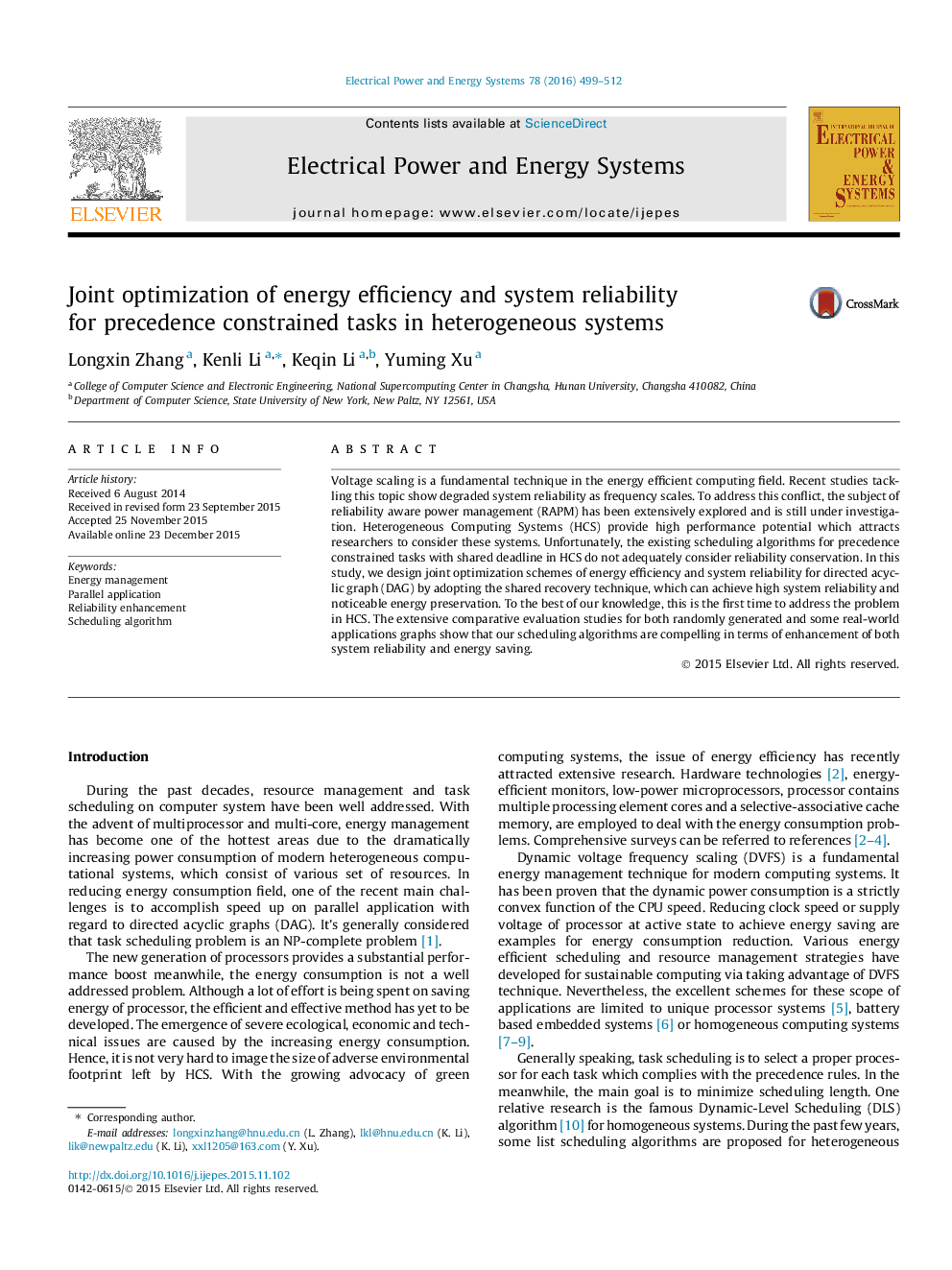| Article ID | Journal | Published Year | Pages | File Type |
|---|---|---|---|---|
| 398455 | International Journal of Electrical Power & Energy Systems | 2016 | 14 Pages |
•We adopt an effective power model to analyse energy consumption of processors in HCS.•The presented fault model captures the case of task execution more precisely.•We employ the share recovery technique to address the soft error during task scheduling.•The slacks among the processors are reclaimed with system reliability preserving.•Higher system reliability can be achieved even when soft faults are encountered.
Voltage scaling is a fundamental technique in the energy efficient computing field. Recent studies tackling this topic show degraded system reliability as frequency scales. To address this conflict, the subject of reliability aware power management (RAPM) has been extensively explored and is still under investigation. Heterogeneous Computing Systems (HCS) provide high performance potential which attracts researchers to consider these systems. Unfortunately, the existing scheduling algorithms for precedence constrained tasks with shared deadline in HCS do not adequately consider reliability conservation. In this study, we design joint optimization schemes of energy efficiency and system reliability for directed acyclic graph (DAG) by adopting the shared recovery technique, which can achieve high system reliability and noticeable energy preservation. To the best of our knowledge, this is the first time to address the problem in HCS. The extensive comparative evaluation studies for both randomly generated and some real-world applications graphs show that our scheduling algorithms are compelling in terms of enhancement of both system reliability and energy saving.
